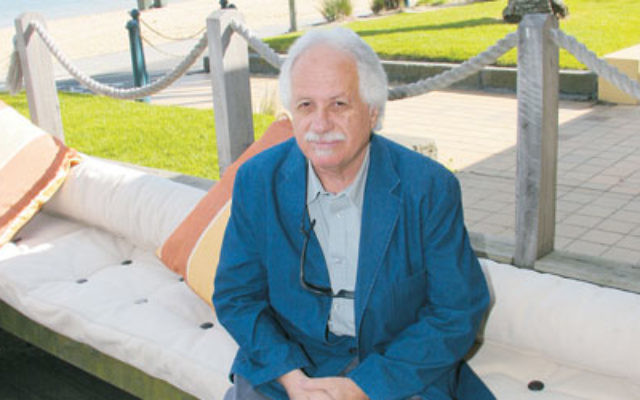World of Israeli films
STORIES of Israel as an immigrant community are strongly reflected in the line-up of films screening at this year’s expanded Australia Israel Cultural Exchange (AICE) Israeli Film Festival.
Festival artistic director Katriel Schory has chosen 16 feature films and four documentaries that give insight into the “marvellously rich and complex society that is Israel today” for the festival, which opens in Sydney on August 15, in Melbourne on August 28, and then in Brisbane, Adelaide and Perth.
Born in Israel, Schory studied at the New York University Film School and produced many award-winning dramas and documentaries for Israeli and US film and television before becoming executive director of the Israel Film Fund (IFF) in 1999.
“The mid-1990s were a tough time for Israeli cinema because the funds were cut drastically,” explains Schory by phone from Israel.
“Stories didn’t resonate or connect with Israeli audiences. Israeli filmmakers were making what the Americans call ‘navel-gazing’ stories. The stories were very Tel Aviv life, very introverted and very personal.
“Israeli audiences turned their back on Israeli cinema, and we had to do our best to turn this around. It took us four or five years to do this through encouraging different kinds of films, opening up the stories to the multicultural society we are, to make people respond with hope to Israeli cinema.”
The IFF provides funding for 90 per cent of all feature films made in Israel, and Schory describes Israeli cinema today as a national success.
“We have managed to develop a film language which is now recognised as being very powerful and strong, with very clear themes,” he says.
“The filmmakers reach people. They are courageous, daring to open themselves up. A lot of the films are based on personal experiences. Some come from literature, but many come from the experiences of the filmmaker.
“We don’t make romantic comedies, thrillers or horror films. Our films reflect us. The evidence of success is there too. In the past five years, four Israeli features have been nominated for an Oscar [best foreign film] at the Academy Awards.”
One of the films screening at the festival is Ami Drozd’s My Australia, which will connect strongly with many Polish Jews who migrated to Australia after World War II.
Based on Drozd’s personal experiences, the film is set in a nameless Polish town in the early 1960s. Tadek, 10, and his brother Andrej, 14, are both members of a neo-Nazi gang of youths who are arrested by police for beating up young Jews.
Their mother, Halina, is forced to tell them the truth: although Tadek and Andrej were raised as Catholics, she is a Jew and so are they. The only recourse, she tells her horrified sons, is to immigrate to Australia, a decision which delights Tadek, whose knowledge of the country is limited to kangaroos.
When they are halfway on a boat to Haifa, Halina informs her sons that they are really immigrating to Israel. This begins a period of adjustment in their new country, where as “goys” they struggle to find their place and identity.
My Australia is a co-production between Israel and Poland, which explores prejudice and the struggle for self-identity as seen through the eyes of children.
For Schory, My Australia is one of several joint projects between Israel and Poland that, as well as producing powerful art, marks an ongoing healing process between the two countries.
“We have a bilateral treaty with Poland, and this makes a bond between the countries, both historically and regarding the filmmakers and their subject matter,” says Schory. “At the moment, there are at least three or four feature films being made together by Israeli and Polish filmmakers, and a number of Israeli film producers are in conversation with their counterparts in Poland, on an almost daily basis.”
Another significant film marking the successful integration of transplanted communities in Israel is Marco Carmel’s My Lovely Sister, a magic realist tale about a woman banished from her family for marrying an Arab, which is based on an old Moroccan folktale.
“North Africans constitute a big community in Israel,” says Schory. “There is a longing in young filmmakers who come out of this community to go back and explore the traditions, and the way their parents and grandparents lived.
My Lovely Sister strikes a chord with audiences in Israel, and hopefully this will be the case elsewhere, too.
The AICE Israeli Film Festival is being held in Sydney from August 15-26 at Palace Verona, 17 Oxford Street, Paddington and in Melbourne from August 28 to September 9 at Palace Como, South Yarra and Palace Brighton Bay, Brighton. Enquiries: www.aice.com.au; www.palacecinemas.com.au.
REPORT by Jan Epstein
PHOTO of Israeli Film Festival Festival artistic director Katriel Schory


comments